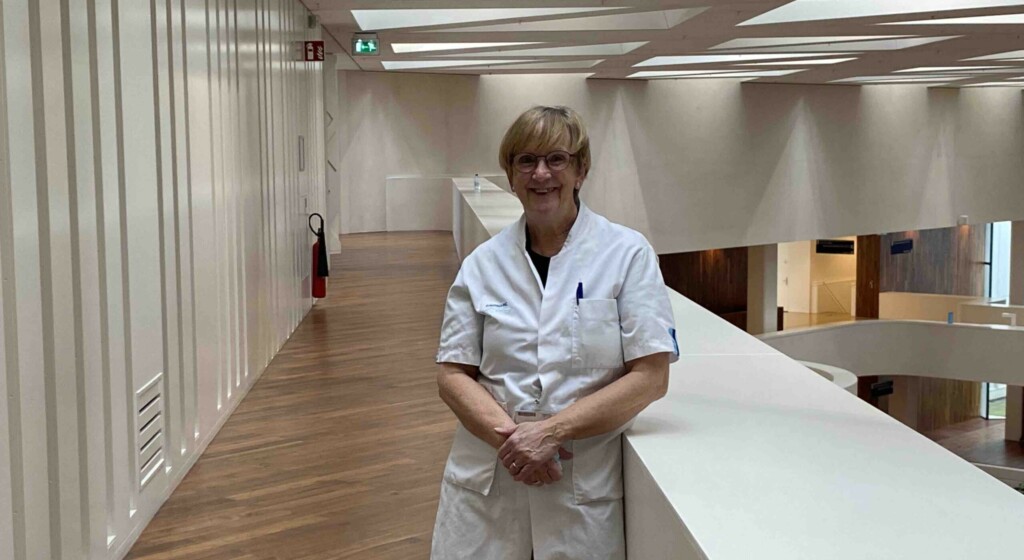What is familial atrial fibrillation?
Over 3 million AFib cases have been reported worldwide and these numbers are adding up. 1 in 5 of these atrial fibrillation cases, may be caused or influenced by a fault in genetics. This type of atrial fibrillation is called familial atrial fibrillation, meaning a vulnerability for developing atrial fibrillation is passed from parents and grandparents to their children through their genes. In science, we also refer to the genes as the DNA.
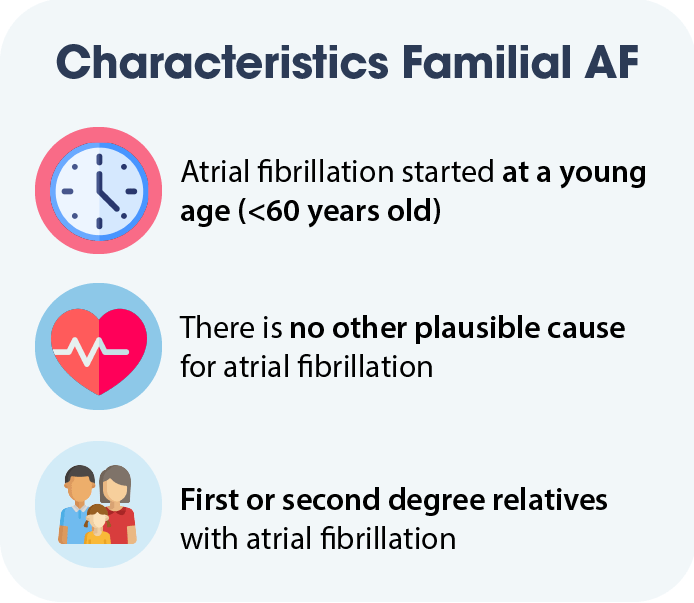
Patients with possible familial atrial fibrillation:
- Develop atrial fibrillation at an early age. At least under 60 years old, but often even younger.
- Often have no other identifiable cause for atrial fibrillation, such as congenital heart defects or other cardiovascular diseases.
- Have more close relatives with atrial fibrillation such as siblings, parents, grandparents, uncles or aunts.
If you meet these characteristics as a patient, it does not mean that your atrial fibrillation is familial. These characteristics are clues for a doctor to further investigate the cause of atrial fibrillation.
Why is more research into familial AFib necessary?
Atrial fibrillation puts patients at a much higher risk for serious conditions, such as stroke or heart failure. In addition, atrial fibrillation is a condition that can cause unpleasant or debilitating symptoms affecting your daily life, for example fatigue, heart palpitations and shortness of breath. Therefore, physicians aim to treat atrial fibrillation early and effectively, to minimize the chances of serious heart disease and to decrease the burden of atrial fibrillation symptoms.
There is still too little known about familial atrial fibrillation. Therefore, we currently lack any form of screening, test or treatment for this form of atrial fibrillation. Unfortunately, there are many families where an unusual amount of family members have atrial fibrillation and already at a very young age. This gives a strong indication that atrial fibrillation is due to a genetic defect or variation. If we know more about genetic atrial fibrillation, we can develop a screening or test to detect familial atrial fibrillation early in families. Additionally, we could tailor the treatment of atrial fibrillation to the specific defect in the genes, making treatment more effective for each individual patient.
What research is the AFIP foundation doing on genetic atrial fibrillation?
In addition to AFIP’s DNA-fix project, the research team has now opened an outpatient clinic at Rotterdam Erasmus MC: the Familial Atrial Fibrillation Outpatient Clinic (FAF). This clinic consults patients and families where atrial fibrillation may be hereditary. We ask you or your doctor to provide us with a blood sample in case in the outpatient clinic doctors and researchers think that atrial fibrillation may be genetic. With this blood sample, we can perform lab tests to look for errors or changes in genes that might contribute to the development of atrial fibrillation.

Discovering genes that contribute to AFib development
- Which genes are different: in the Familial AF Clinic, we ask family members with atrial fibrillation to donate a tube of blood. The blood examination enable us to find genes that have errors or vary from the general public. These genes may be the cause of atrial fibrillation and need further investigation.
- Which genes cause certain symptoms: Each person with atrial fibrillation is different. Some patients experience chest pain and dizziness while others experience a high heart rate or severe fatigue. We collect information about genes and symptoms in the familial AFib clinic. The gene data we collect help us form hypotheses on which changes in the genes cause particular symptoms.
- Treating familial atrial fibrillation: The information that we collect on familial atrial fibrillation provide insights on where we may be able to intervene. For instance, we may try to decrease the amount of atrial fibrillation episodes or decrease the symptoms during an episode.
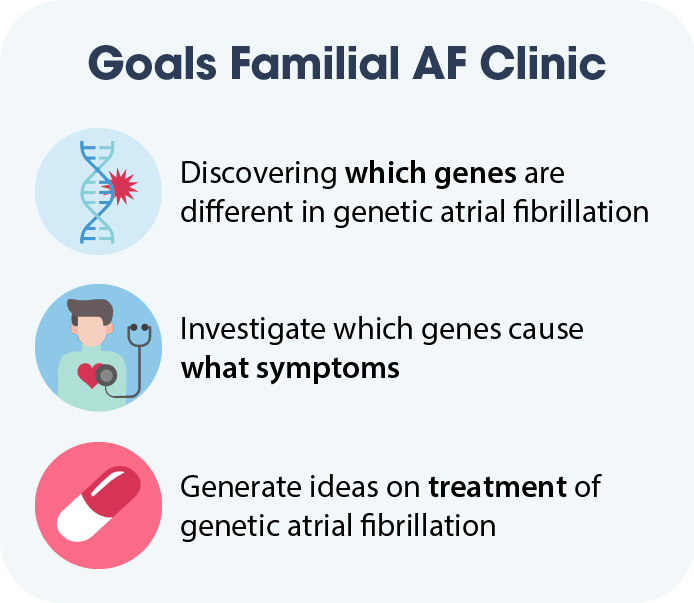
AFIP Foundation is collaborating with Harvard and MIT
AFIP researchers will collect blood samples from Dutch families with atrial fibrillation in the familial AF clinic. We receive a huge stream of information from the collected blood samples, which require a high level of expertise to analyse. Without the right experience, this analysis is like searching for a needle in a haystack. Because of this potential hurdle, we started a collaboration with one of the best genetic labs in the world, the Ellinor Lab at the Broad Institute of Harvard and MIT in Boston (MA), US.
The next step in AFIP’s familial atrial fibrillation research is to send young researcher Leonoor Wijdeveld to the Ellinor Lab in Boston. This collaboration will contribute to our knowledge on how to streamline big chunks of genetic information and produce meaningful results. We need this knowledge to help families with atrial fibrillation in the Netherlands.
What does the visit to Harvard and MIT look like?
A visit to the Broad Institute means that young researcher, Leonoor Wijdeveld, will spend six months in the Ellinor lab conducting research on familial atrial fibrillation. During these six months, Leonoor can learn from the best researchers in this field and afterwards invest this knowledge back into the Familial AF project in the Netherlands of which results will be shared worldwide. After returning from the United States, Leonoor will continue working on this project as a PhD student for at least 3 more years. The visit to Boston is scheduled for June through December 2023.
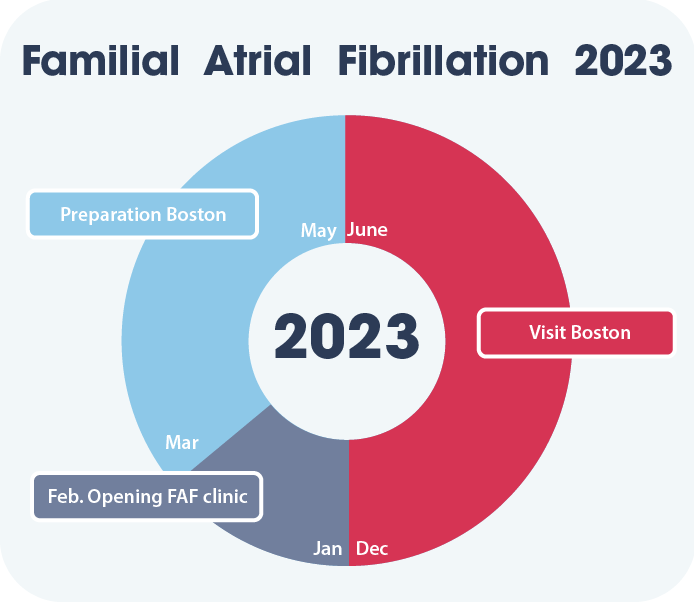
We need your financial support
Compared to the Netherlands, accommodation and cost of living in the US are very expensive and therefore this 6-month visit to Harvard is very costly. The visit to Boston has already received 10,000 euros in support and trust from the Dutch Heart Foundation, the Heart Centre and Amsterdam UMC hospital. However, due to these high costs of daily life in Boston, there is still a shortage in the budget.
If there is not enough money to pay for visa, flights and stay in Boston, the visit to Harvard and MIT cannot take place. That’s why we need your support. Help Leonoor with her research on familial atrial fibrillation
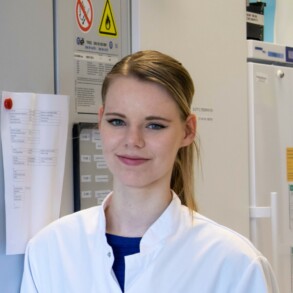
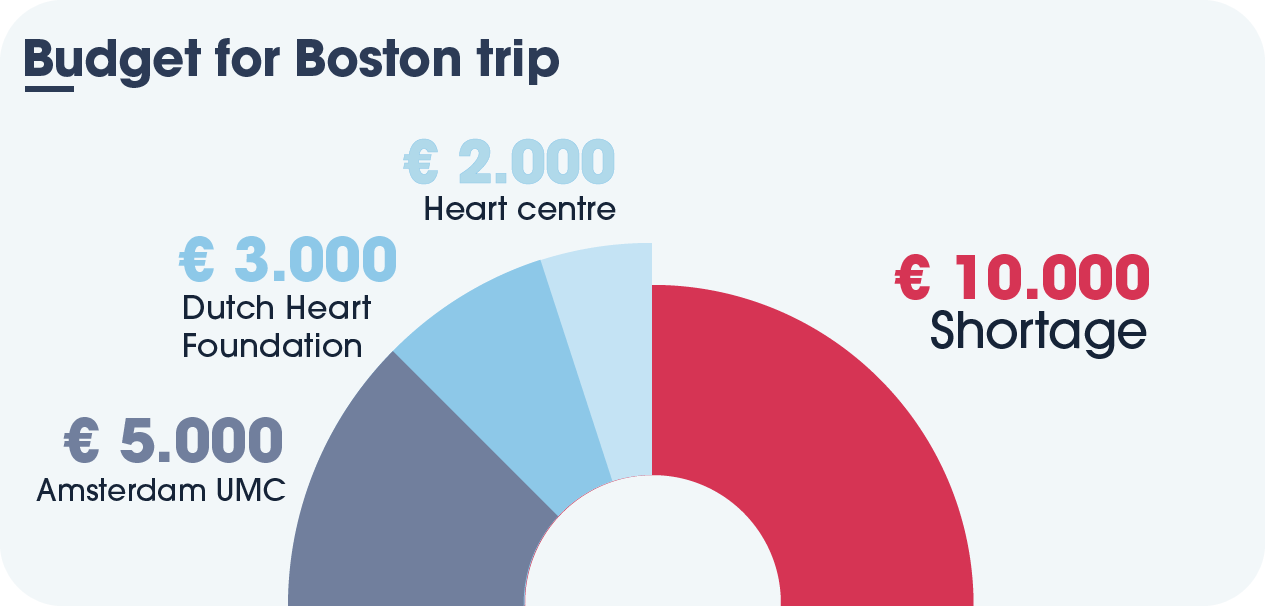
Credit: text and images were created by Leonoor Wijdeveld.
Share this article







